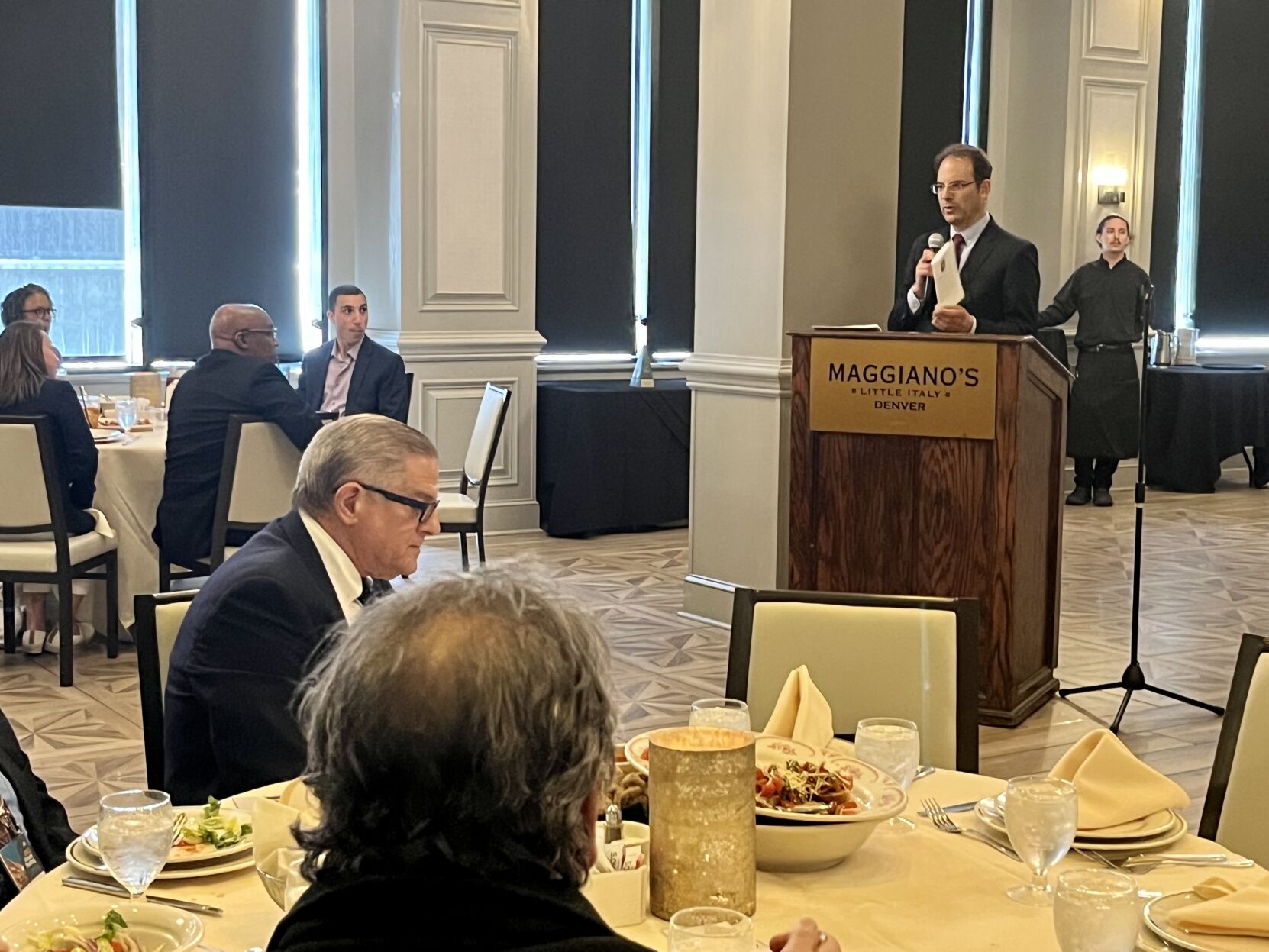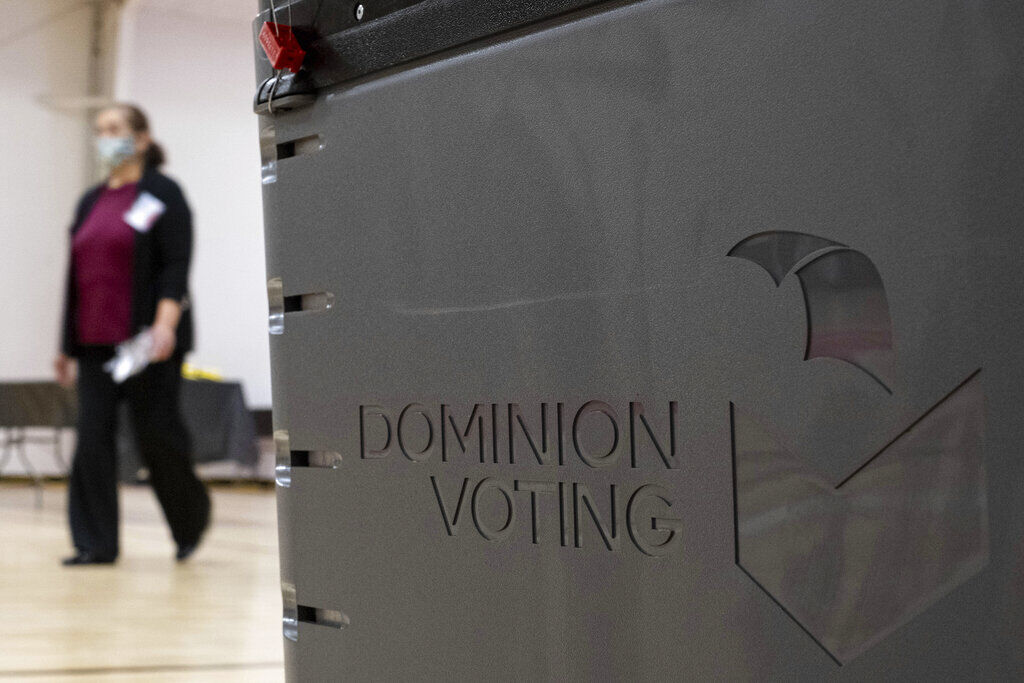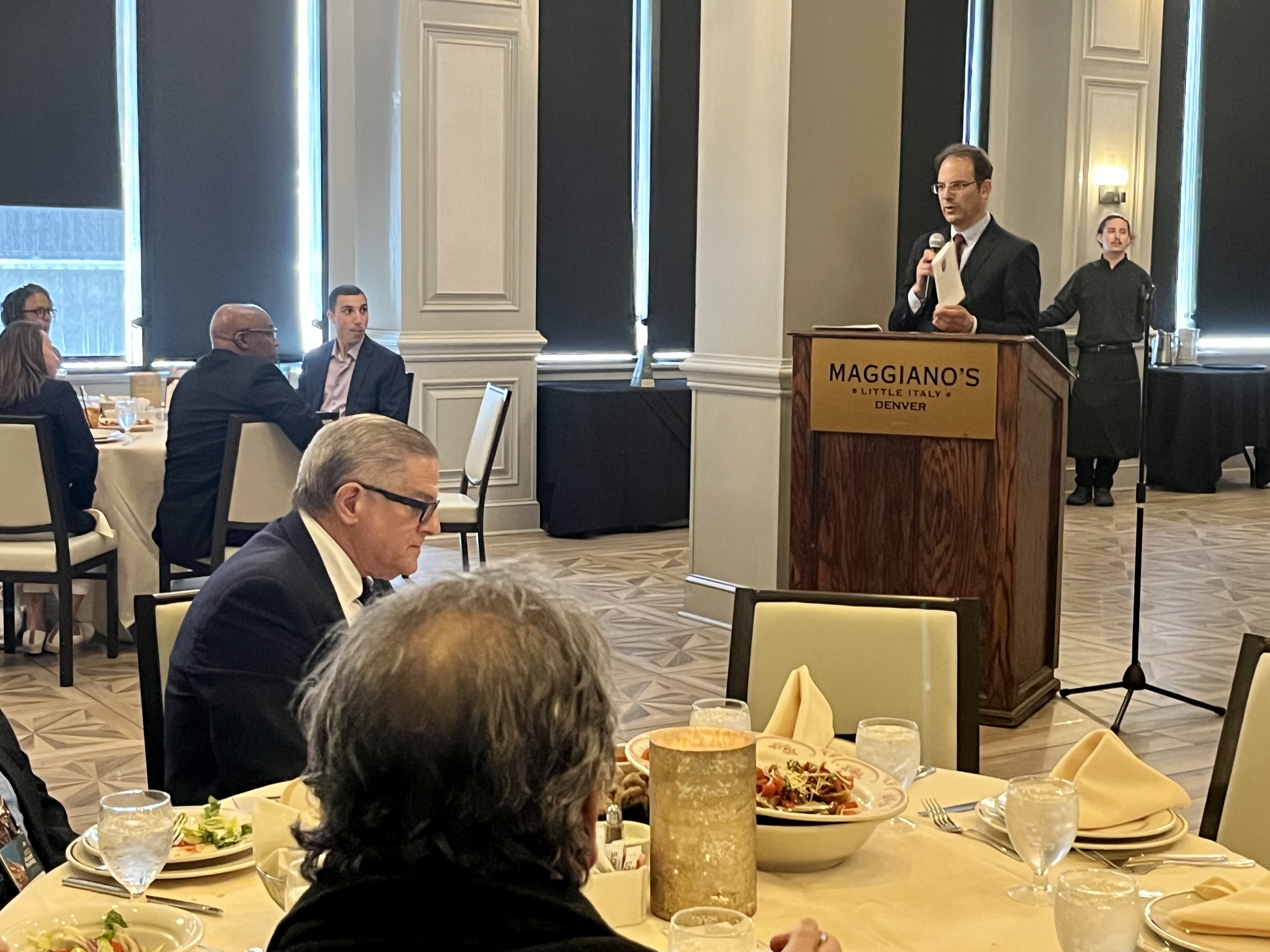High-profile cases, judicial misconduct and other legal topics explored at ABA meeting in Denver

Lawyers and judges from across the country descended on Denver this week for the annual meeting of the American Bar Association, where topics included misconduct in the legal profession, judges’ tips for handling high-profile cases and threats to government officials from domestic extremists.
Colorado Attorney General Phil Weiser also spoke about his personal and professional initiatives since taking office in 2019. On Monday, U.S. Attorney General Merrick Garland will deliver an address to attendees.
One member of Colorado’s bench, Denver District Court Judge Adam J. Espinosa, appeared on a panel to discuss Colorado’s system of addressing attorney and judicial misconduct, with the message that failing to take action on problematic behavior is itself harmful.
Misconduct in the legal profession
Espinosa was an attorney with Colorado’s Office of Attorney Regulation Counsel – which handles misconduct complaints against lawyers – prior to his appointment to the bench. He described to attendees Colorado’s recent changes to its judicial disciplinary structure following media reports of misconduct that was not acted upon.
“Sometimes we might think this lawyer’s having a bad day or this judge is having a bad day or this may just be a one-off,” said Espinosa. “I worry because when I was at the Office of Attorney Regulation Counsel, I saw these lawyers would have bad days, but they would have them across the state.”
He acknowledged that some people are reluctant to report a judge or a lawyer’s conduct because “nothing will happen.” Espinosa’s practice as a judge is to send a factual summary of an incident to regulators, along with a transcript or an audio recording, and let the investigators figure out whether misconduct occurred.
Jeremy Fogel, a retired federal trial judge in Northern California, said some courts operate with “superficial collegiality,” where judges are simply nice to each other. “Real collegiality,” in contrast, is when judges can be vulnerable with their peers when they are struggling.
“It’s really hard. There’s just no other way to say it. To call out a peer and say, ‘You’re drinking too much’ or ‘you’re showing up to work impaired’ or ‘you need to get your mental capacity assessed because you’re losing it,'” he said. “To try to deliver that message is very painful for the person who’s doing it. And as a result, a lot of people don’t do it. That’s why it’s a problem.”
Marla Greenstein, executive director of the Alaska Commission on Judicial Conduct, added that lawyers and judges can be “afraid our process will escalate the problem rather than address the problem.”
To that end, Espinosa said he has seen behavioral issues resolved outside of a disciplinary setting. One attorney was visibly distressed and fainted in Espinosa’s courtroom, prompting Espinosa to refer the lawyer to a confidential attorney wellbeing program. In other instances, lawyers persistently said or did unusual things in court. Instead of immediately filing a misconduct report, Espinosa relayed his concerns to their supervisors.
“Oftentimes, the behavior was changed,” he said.
High-profile trials
In the wake of the 2020 presidential election, Dominion Voting Systems, an election technology supplier based in Denver, sued Fox News for $1.6 billion. It alleged the conservative news network was liable for defamation over false claims Dominion was involved in election rigging.
After a judge in Delaware decided to send the case to trial, Dominion and Fox reached a $787.5 million settlement just as the trial was scheduled to begin – perhaps the largest settlement of its kind.
At the ABA meeting, the man who oversaw the case, Superior Court Judge Eric M. Davis, spoke out publicly about his experience for the first time.
“I’m very anonymous. I didn’t want this,” he said. “What I found was my privacy was violated. I serve on some charity boards that provide treatment for substance use disorder and they would be contacted. My law clerks, my former law clerks, were contacted and specifically asked how I would rule on issues.”
Davis said he found that disturbing.
“I wasn’t a party in this case. I was just the judge,” he said.
Davis recalled having security come to his house and discuss what would happen if a single intruder arrived (“you have to find a room that’s defensible”) or if multiple intruders broke in. Davis called that thought a “pretty big sucker punch,” but suggested judges engage with local law enforcement ahead of time in the event a threat arises at a judge’s home.
“Don’t kid yourself. A crazy person could be a civil litigant over $50,000. It may be life or death to them,” he said.
Ultimately, Davis advised judges to embrace the experience of presiding over a high-profile case.
“This is an adventure, guys. If we think of it as a task … we’re not going to make it,” he said.

The panel also included South Carolina Circuit Court Judge Clifton Newman, who recently handled the murder trial of Alex Murdaugh, a member of a prominent legal family in South Carolina. Newman’s role rendered him somewhat of a celebrity, and he said he had no problem with being the one on camera.
“We cannot assume any one of us is not ready for a big moment,” Newman said. “Our training as judges is such that when a big moment comes, step up to the plate. I think the worst thing you could do is find an excuse not to accept a big responsibility when it comes your way.”
Newman pointed out his daughter, Circuit Court Judge Jocelyn Newman, who was also in attendance, made headlines herself last year after she declared South Carolina’s use of firing squads and the electric chair unconstitutional for death row inmates.
Extremism
In a discussion about extremism and terrorism, U.S. District Court Judge John R. Tunheim of Minnesota called out alarming political division in the country, fueled by social media. His court has handled cases involving people who seek to become “foreign terrorist fighters” as well as domestic threats.
“We’ve had about 75 of these cases, both White supremacist types of violence and violence associated with overseas terrorism,” he said.
Attendees watched a recorded video from Pete Simi, a Chapman University professor who studies extremist groups and violence. He warned against “telling ourselves the glass is half full” and to instead acknowledge there are internal threats to American democracy.
“As Americans, we have proud traditions. We proudly salute our flag. We sing the same patriotic songs – The Star-Spangled Banner, America the Beautiful,” observed recently retired Judge Bernice Donald of the Cincinnati-based U.S. Court of Appeals for the Sixth Circuit. “And yet lately, we have these mantras that we must ‘take our country back.’ Who are the takers and who are we taking it back from?”
Tunheim responded that it was a “real sad thing” how outward displays of patriotism can now lead to questions of whether someone harbors extremist views. He also cautioned that people feel more empowered to threaten the lives of public officials.
“What is really concerning, I think, is the person who doesn’t make a threat to your chambers’ email inbox, but they act on what they’re reading,” Tunheim said. “They think it’s OK. They think it’s right. It’s in the name of ‘taking back our country.’ It’s a scary prospect. We’ve had prosecutions recently in my district of people who threatened to kill judges.”
Weiser speaks
Weiser addressed a luncheon crowd of the Jefferson Fordham Society on Friday. Also in attendance were fellow Democratic Attorneys General Kwame Raoul of Illinois and Ellen Rosenblum of Oregon, who introduced Weiser as “one of the deeper thinkers” among state attorneys general.
Weiser spoke about his involvement with local governments, his focus on the proposed Kroger-Albertsons merger and the need to engage with people of different viewpoints.
“Here’s the secret: The real difference in government is not between Democrats and Republicans. It’s between innovation and inertia,” he said.
Weiser spoke briefly of his Ginsburg/Scalia Initiative, named after the late U.S. Supreme Court Justices Ruth Bader Ginsburg and Antonin Scalia, who maintained a friendship despite their differing political ideologies.
“My call to all of us as lawyers is we start from the principle that we can all learn from one another,” he said.
Weiser also warned that the rise of artificial intelligence is “another potential nail in the coffin of our democratic republic,” and boasted about Colorado’s system of election administration.
“The way you undermine confidence is you make it hard to vote, you make it harder for some people than other people to vote, you make it hard to watch or observe the counting of the vote, you make it hard to audit it,” he said. When that happens, “you’re playing with fire.”

michael.karlik@coloradopolitics.com












